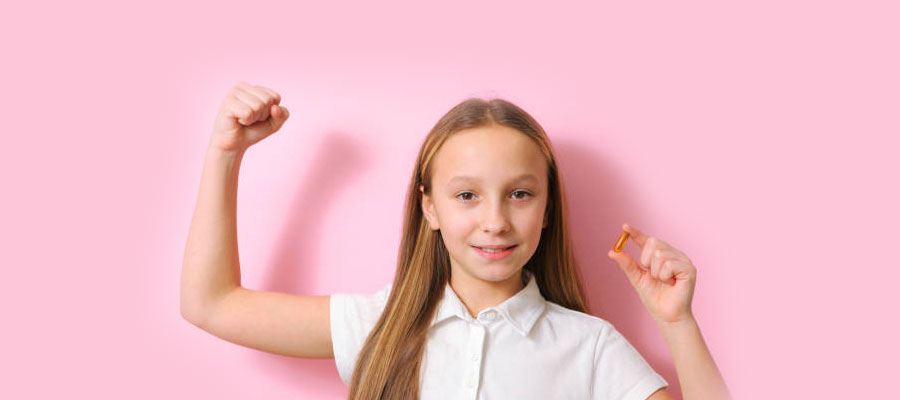In honor of the National Youth Week, we want to emphasize the importance of promoting healthy lifestyles and physical activity for emerging adults. As Aristotle famously said, “Good habits formed at youth make all the difference.” Encouraging children to lead a healthy and active lifestyle is vital to their overall well-being. In this post, we will explore the significance of exercise and proper nutrition for youth, and how supplements can be a helpful addition to a healthy lifestyle.
Why Promoting Healthy Lifestyles and Physical Activity for Youth is Important
The World Health Organization recommends that children and youth should engage in at least 60 minutes of moderate to vigorous physical activity daily. However, only one in four children worldwide meet this recommendation. Regular exercise has many benefits for young people, such as:
Improved cardiovascular health: Regular physical activity can help lower blood pressure and cholesterol levels, reducing the risk of heart disease later in life.
Stronger muscles and bones: Regular physical activity, especially through sports participation, can help build stronger muscles and bones, reducing bone disorders. Encouraging young ones to engage in sports and other physical activities can help promote a healthy and active lifestyle.
Better mental health: Physical activity can improve mood, reduce symptoms of depression and anxiety, and boost self-esteem.
Better sleep: Getting enough restful sleep is essential for maintaining physical and mental health. Regular exercise can help improve sleep quality and reduce the risk of sleep disorders.
In addition to exercise, a healthy diet is also essential for young people. It’s important to lay the foundation early on for children to eat a variety of fruits, vegetables, whole grains, and lean proteins while limiting processed and sugary foods, and ensure they stay hydrated by drinking plenty of water.
What Supplements Can Help Promote Physical Activity and Overall Health?
While supplements can be a helpful addition to a healthy lifestyle, they should not replace a healthy diet or exercise. Consulting with a healthcare professional before introducing supplements to a child’s diet is essential to determine the appropriate dosage and ensure they are safe to take.
Here are a few supplements that can aid in promoting physical activity and overall health for young people:
Multivitamins: Children and adolescents may not always get all the essential vitamins and minerals they need from their diet. A multivitamin can help ensure they get the nutrients they need for healthy growth and development.
Omega-3 fatty acids: EPA and DHA are the two important types of omega-3 fatty acids which are essential for brain health and development. These fatty acids are commonly found in fatty fish like salmon, but if you’re not fond of fish, taking an omega-3 supplement may be a good alternative to ensure they are getting these vital nutrients.
Vitamin D: Vitamin D is essential for bone health and can help reduce the risk of fractures. It can be challenging to get enough vitamin D from diet alone, so a supplement may be beneficial, especially during the winter months when sun exposure is limited.
Protein supplements: If your child is involved in sports or other physical activities, they may need more protein than what they’re getting from their diet alone. Protein supplements can help support muscle growth and repair.
When choosing supplements, it’s important to consult with a healthcare professional first to determine the appropriate dosage and ensure they’re safe for your child to take.
Promoting healthy lifestyles and physical activity for youth is crucial for their overall health and well-being. Regular exercise and a healthy diet can help reduce the risk of chronic diseases, improve mental health, and build strong bones and muscles. While supplements can be a useful addition to a healthy lifestyle, they should not replace a healthy diet or exercise. Consult with a healthcare professional to determine which supplements, if any, are right for your child.
